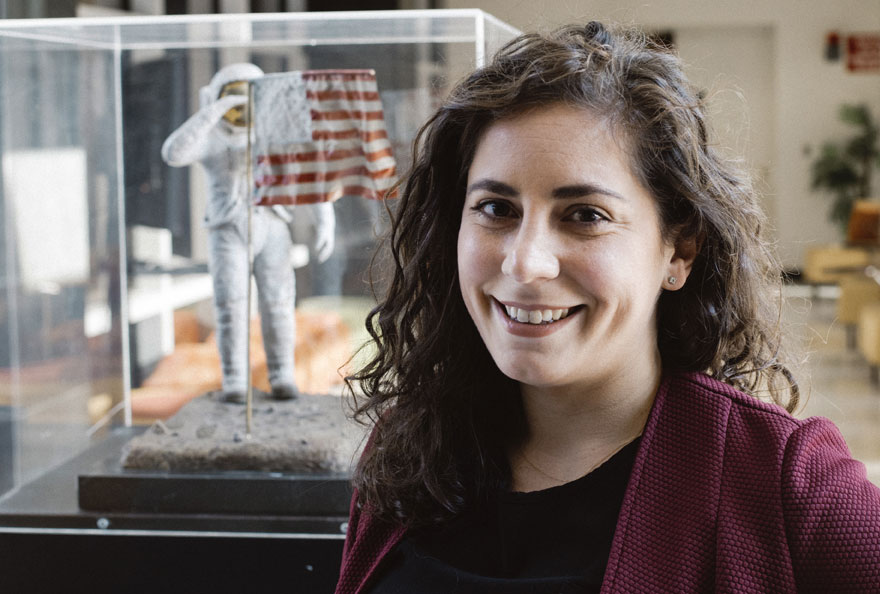Kristen Facciol - Operations Engineer, Mission Control Group

- Quote: Find something that makes you happy and gives you a feeling of purpose, but also challenges you.
- Studies: B.ASc., Aerospace Engineering
- Job title: Operations Engineer, Mission Control Group
- Employer: Canadian Space Agency
What is unique about your job?
By the time I complete my training, I will be operating the robotic systems on the International Space Station. I also participate in training, which allows me to teach astronauts how to operate Canadarm2 and Dextre.
Which professional accomplishment are you the most proud of?
Moving to Montreal and joining the Canadian Space Agency was one of my proudest moments, and a transition that has opened up several new doors for me. I am currently training at NASA's Johnson Space Center (JSC) to operate as part of the Mission Control Team! Working at NASA and being able to represent Canada at JSC was an opportunity I never thought I would have. It still seems like a dream.
Who or what helped you the most throughout your career?
I have always had a desire to improve myself and push my own limits as well as the limits set by others. This mentality, combined with incredibly supportive family and friends, is definitely why I have been successful in my career.
What advice would you offer to girls or women?
Find something that makes you happy and gives you a feeling of purpose, but also challenges you. This will always drive you to improve and help ensure that you won't let anything get in the way of your own success.